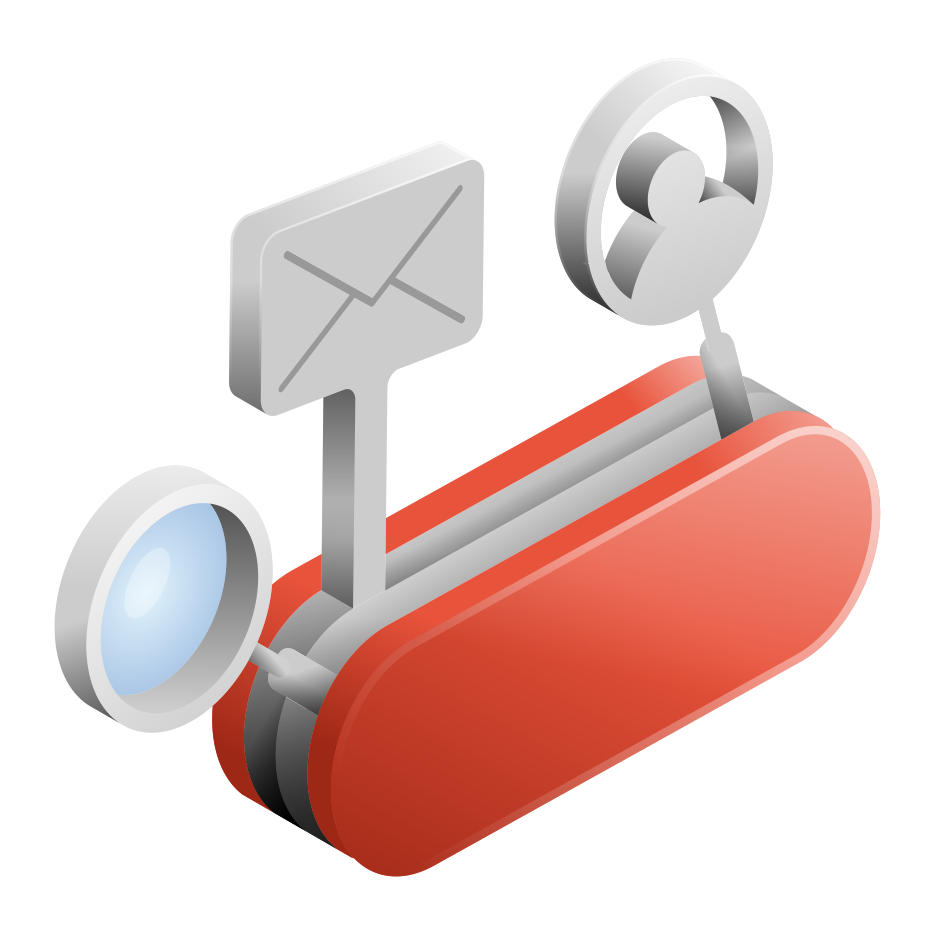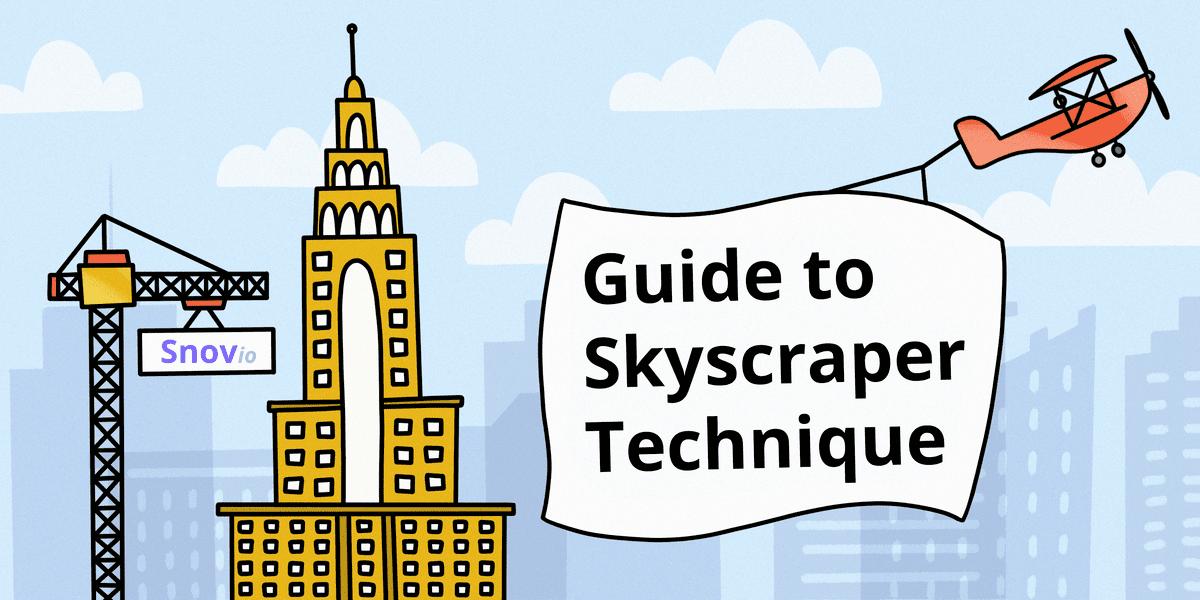How often do you delete outreach emails without even reading them?
Be honest, you probably do it a lot. And with 319 billion emails sent daily, so do others. But here’s the question: what do you need to do to cut through the noise and get your cherished link?
We’ve reached out to 12 link-building and outreach experts to learn more about their struggles, strategies they use, and tips they are ready to share to help you get your email opened, read, and replied to.
Outline:
- What obstacles have you faced along the way?
- What link-building strategy do you use?
- Where do you find partners?
- What is your sure-fire subject line?
- How do you add personalization to your outreach?
- How many follow-up emails do you send?
- What automation tools do you use for link building?
- Setting up your outreach campaign with Snov.io
What obstacles have you faced along the way?
Let’s start with an unpleasant part. Link building isn’t easy. And while the roadblocks might differ, here are some of the common ones you might encounter:
A perfect template doesn’t exist
It’s easy to see when an email you received uses a template. “Hi, Tamara. I just found your amazing post. I have a similar amazing post! What about adding an amazing link to it?”
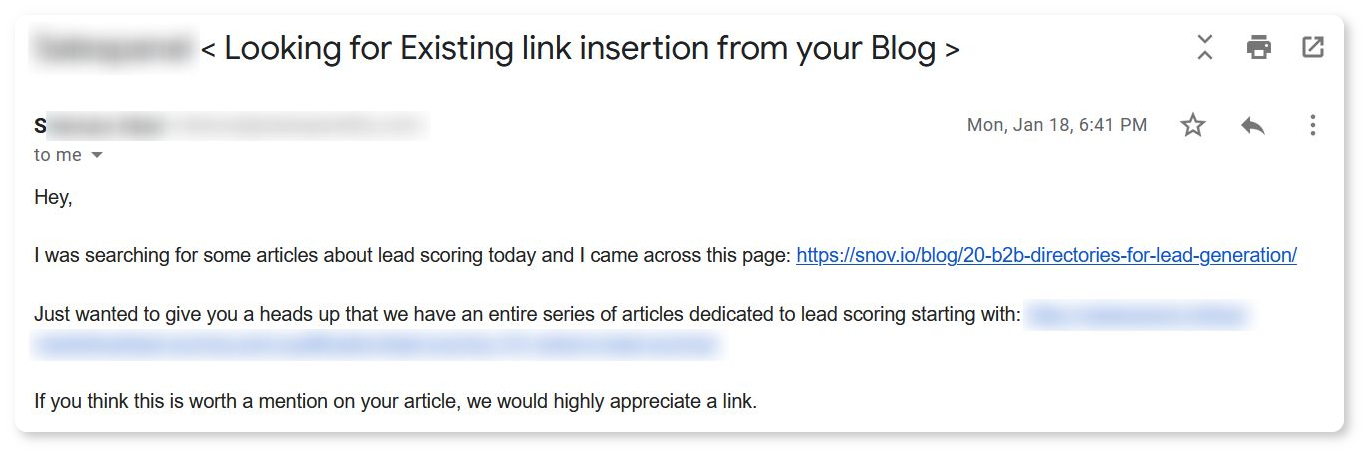
You know dozens of other people got the same message, too. Such an email might as well just be thrown into the Trash folder.
But that’s what outreach specialists all struggle with sometimes, and we are not an exception. Our SEO specialist Valerie Frolova feels frustrated when she gets no response from websites that are usually active on socials, adding new posts.
“It seems like they reply to anyone but not me (especially when they mention our competitors — how DARE they?). Then I take a deep breath and rewrite my email with a clear understanding that it sucks, and I would never reply to it, too.”
There’s no unique template you can find on Google, but you can be inspired by them and write your own.
Some links don’t get you much movement
Oh, this challenge might not be an obvious one, but link-building may sometimes hurt you more than it helps you.
Dmitry Dragilev, Founder of JustReachOut, explains that the issue most times is that the link you get doesn’t make that much sense to have there in the first place. In other words, it’s stuffed into the content.
As a result:
- You get an article about email marketing to link to your Facebook Ads tutorial.
- You get a podcast episode about business operations to link to your “Best Email Marketing Automation Tools” guide.
- You get a link from an article that is 2,000 words and has 15 links in it already.
- You get a link from an article on a domain with a TON of links in each of the blog posts they publish.
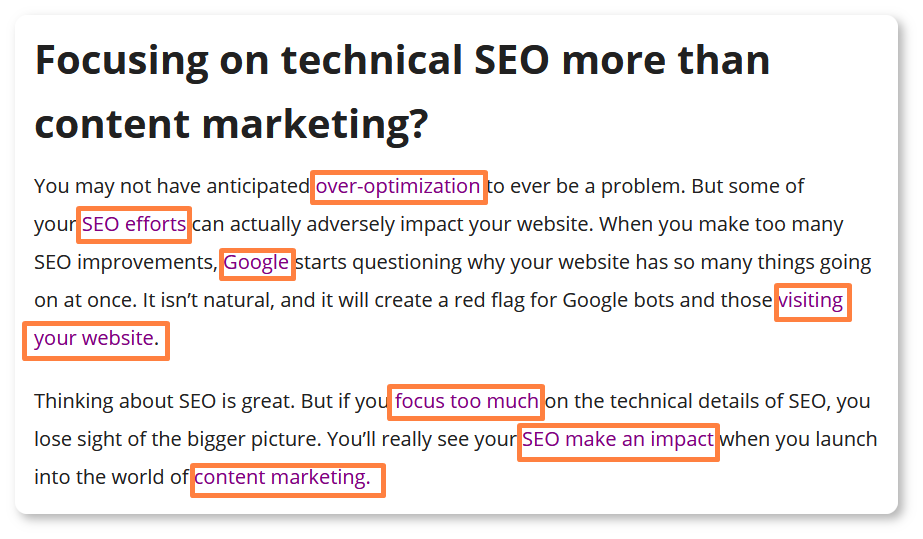
The solution?
“Find a place where a link to your piece of content enhances the original article and the experience the reader has as they consume and digest the information. A lot of times your job will be to add examples to your piece of content on your site, which you can reference and ask for a link to from other websites.”
Your content has no value
You might think every article you publish is a masterpiece but is it really so? Be realistic about the value of your offer and provide social proof in your message that will back it up.
As Deepak Shukla, Founder of Pearl Lemon, says, what many people don’t understand is that link-building is all about being honest, building relationships, and providing value. That’s the game you’re in!
“In the beginning, you may not have a strong brand or be creating remarkable content that will cause others to want to associate with you. I had this same problem — I didn’t realize I needed to create content that would demonstrate my value to others. This would have helped foster and forge relationships faster.”
Take a look at a few examples of good social proof that can be used in an outreach email. Notice how none of them ask for a link:
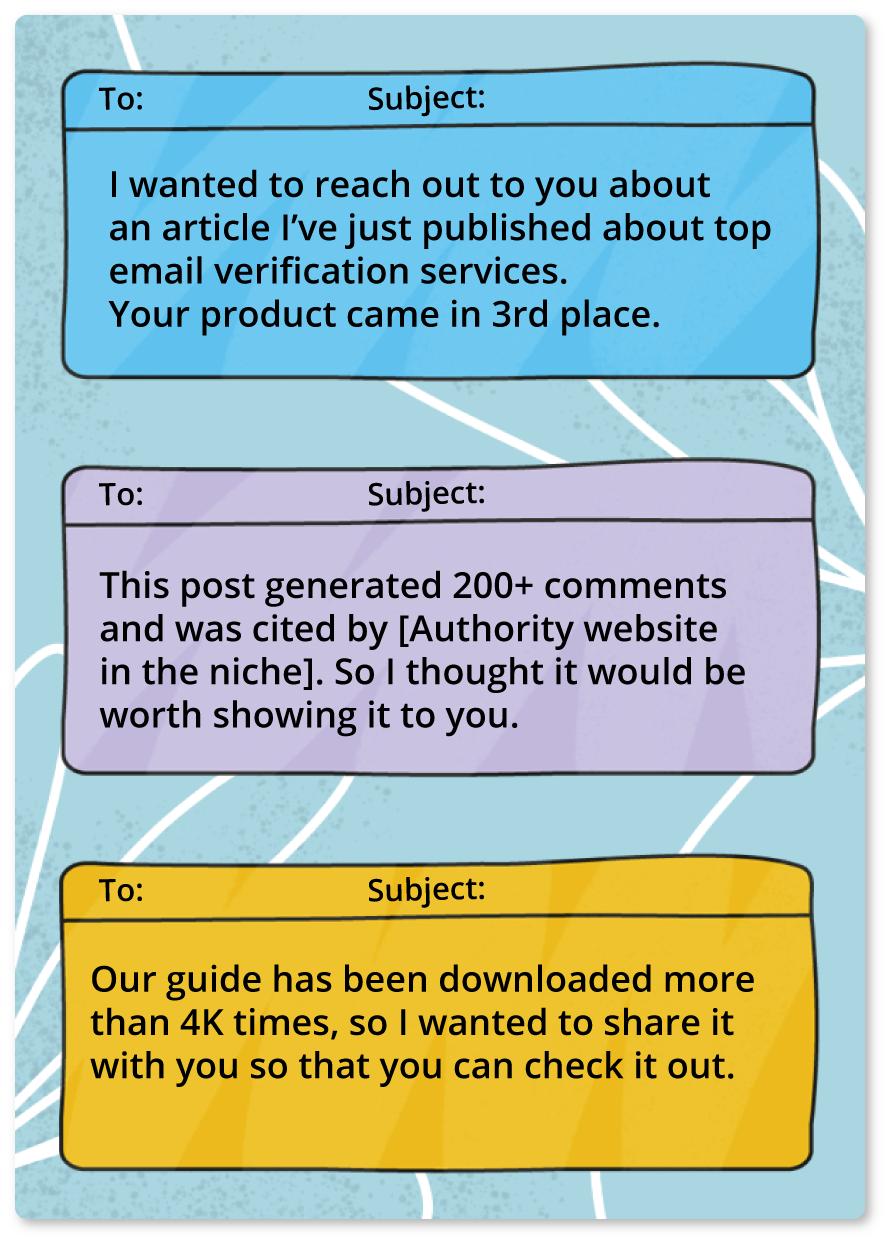
What link-building strategy do you use?
We got a lot of answers, from skyscraper technique to shotgun outreach. But some of them were more popular than the others:
Guest posting
Plenty of websites out there are hungry for good content. And if you’re offering a lot of value from the post, your chances of success are much, much higher. You also have a greater level of control over elements like anchors.
This is the strategy that Tom Bangay’s (Director of Content at Juro) team is the strongest in:
“You’re less likely to need to crowbar in links that stick out like a sore thumb in the narrative — because you control the narrative. For example, trying to secure a link to something obscure like NDA automation from a post that’s already live is much more precarious than writing a post about NDA automation and then placing it. Once someone has agreed to take your post, then your success rate at securing links is close to 100%.”
Matthew Woodward, Owner of MatthewWoodward.co.uk, has the most success with this tactic too:
“Having your link published in new content is much more natural than link inserts or even worse… link exchanges! These need to be avoided as they are manipulated links that carry a high risk.”
This one is a pretty nice guest post outreach example, but it would’ve been better if the link building specialist included personalized ideas in the first message:
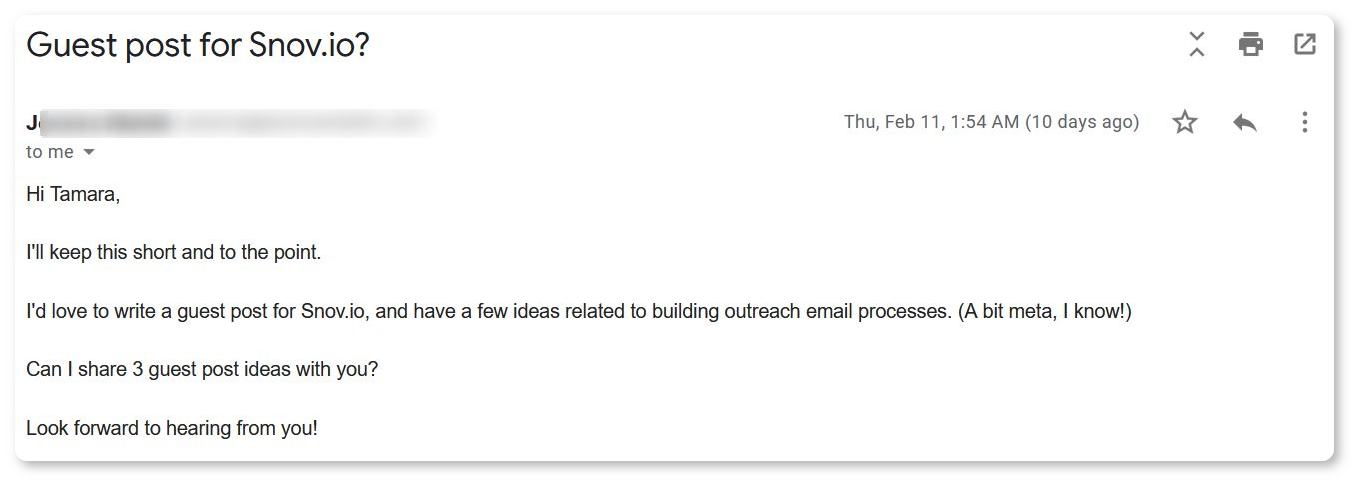
Infographics
Another useful link-building strategy is shared by Daniel Foley (Director of Daniel Foley). Infographics not only work to build your authority in a particular industry or area but are also a sure way to get clients to share your links.
Social media (specifically Twitter, Instagram, and LinkedIn) are full of users wanting to share opinions and insights, and they will be more than happy to share evidence and free statistics alongside those opinions.
“The great thing about infographics is that they tend to have a fairly long life span, especially with finite subjects. And you could see the links being shared again and again over a month or two. Expect the response to be quick and sharp. Giving you a few months to a year (depending on subject) to plan your next winning infographic-filled post.”
Sounds promising? Here are a few tips to help you craft an infographic that will bring you links:
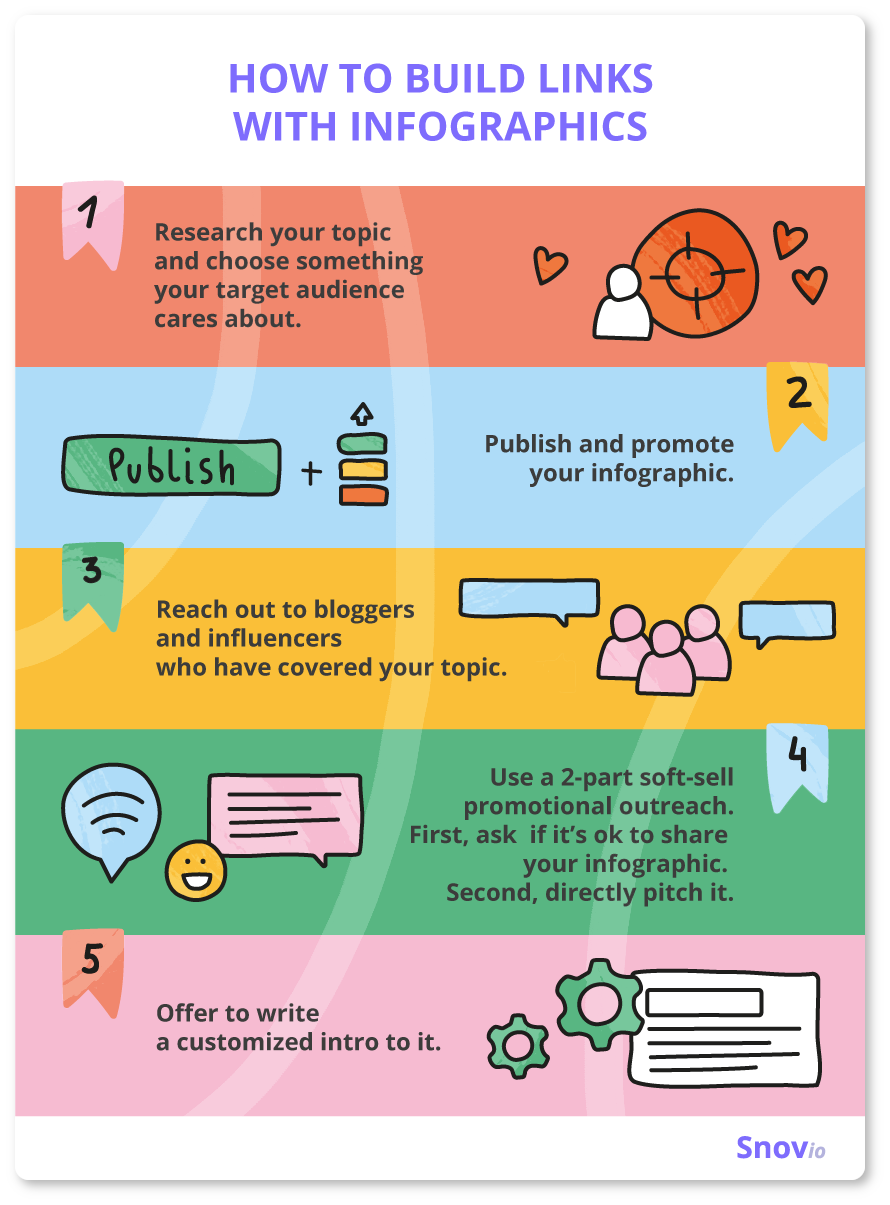
Relationship-based link building
This is, perhaps, the most powerful strategy out of three. If you want to earn high-quality links from a reputable site, you first need to build a legitimate relationship with the person that runs it. Valerie Frolova loves comparing relationship-based link building with famous brands/people collaborating:
“It’s like two musicians decided to cooperate on creating a new song (especially when it’s two different genres). You get a marvelous result when people like it, and each side attracts a new audience.”
So… maybe, it’s high time to integrate with some tool or cooperate on content building?
Where do you find partners?
Search engines
Let’s start with the simplest option — search engines. If you are doing your link-building outreach manually, without any tools, this is the place you will go. All you need to do is to learn how to be precise with your search queries.
Here are just some of the search operators that can help with your link prospecting:
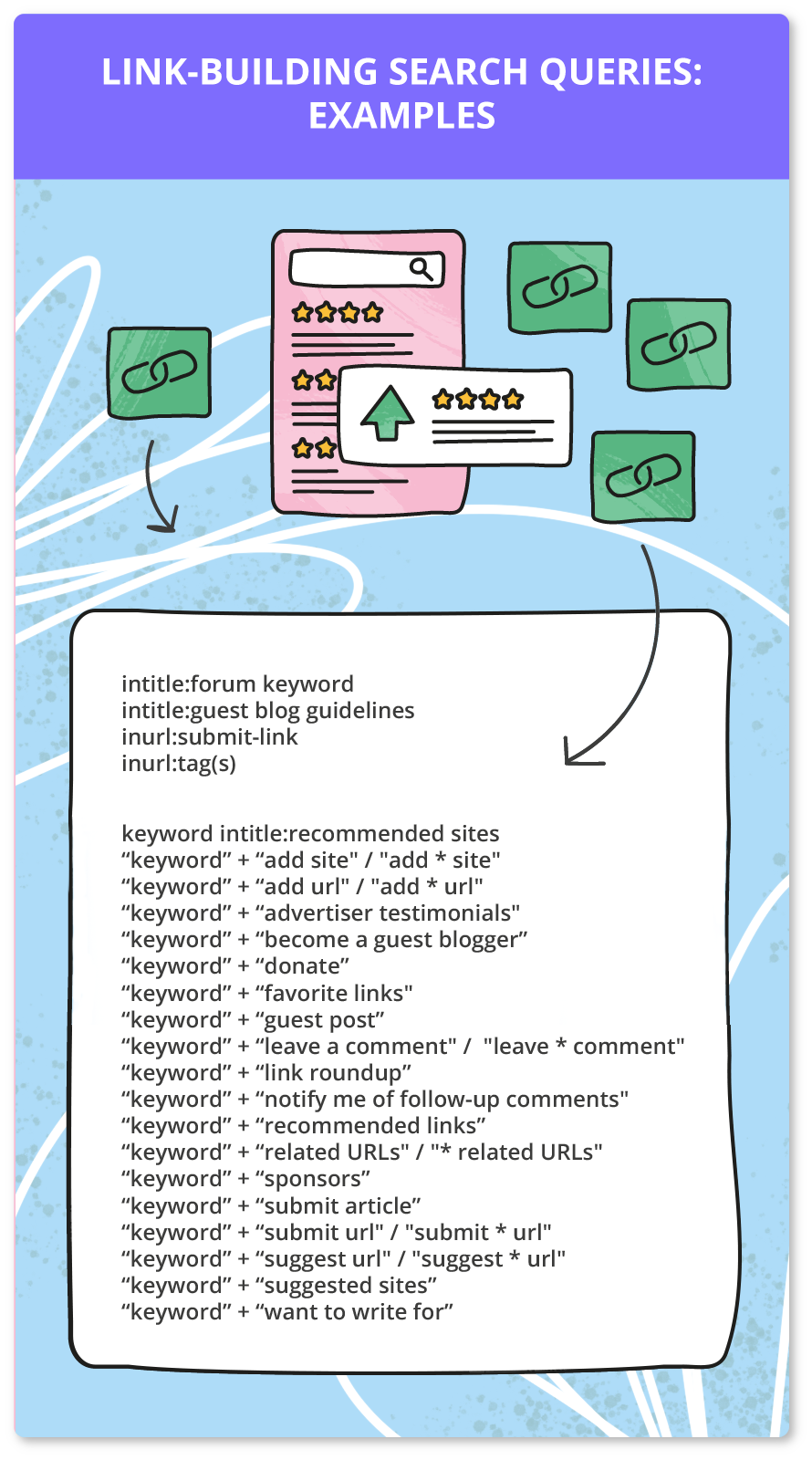
Deepak Shukla has had great success in finding partners within the SEO expert space with the help of this technique:
“In general, Google searches for ‘top bloggers/experts/influencers in X industry’ make it easy to find people you connect with. In terms of criteria, we try to partner with those with equivalent metrics to us in areas such as Domain Authority, traffic trust flow, or brand recognition.”
Scraping tools
Of course, you can make your life easier and use a service to scrape websites relevant to your niche. For example, Matthew Woodward uses tools such as Ahrefs to reverse engineer his competitor’s backlinks:
“The links these sites have pointing to them are already approved by Google as they are positioned in the top spots so it makes sense to try and replicate their best backlinks. Depending on your niche, you can pull thousands of opportunities together in a matter of seconds.”
Expert roundups
Meanwhile, Alicja Olko (Outreach Manager at sixads) believes that expert roundup articles are one of the best methods to build linkable assets and establish valuable connections:
“Approach people featured in the same expert roundup as you. They are usually other marketers, CEOs, editors, and managers working within the same niche, so they naturally share the same interest and goal. Look them up on LinkedIn, reach out with a friendly email explaining the connection, and enjoy building up your network!
I try to keep it simple, professional, and to the point. The reply rate for those kinds of outreach emails is in my case 22%.”
Or, you can create your own expert roundup (just like we did for this article), ask a question, and let experts and peers provide their answers. Such a piece of content is meant to be sharable.
And while we are at it, I will add that using Help a Reporter can help you with it. This is how I got some of the expert tips.

Social media
Being active on social media is a must for link-building. Shayne Sherman (CEO of Techloris) thinks it can see wide ranges of people and companies further sharing your best posts and increasing your visibility massively:
“You get the benefit of knowing how well your link is received fairly quickly, as a regular post on Twitter will usually fail or succeed in the first 30 minutes. With Facebook and LinkedIn, this can take a bit longer with the algorithms working against a natural burst of interest.”
A useful tactic can be tagging in partners to your posts, and rather than selecting the same each time, you can alter them to relevant accounts that will be interested in sharing your content.
What is your sure-fire subject line?
47% of emails are opened based on the subject line alone. So don’t miss a chance to make it memorable!
Some of the things suggested by our experts to pique the recipient’s curiosity are:
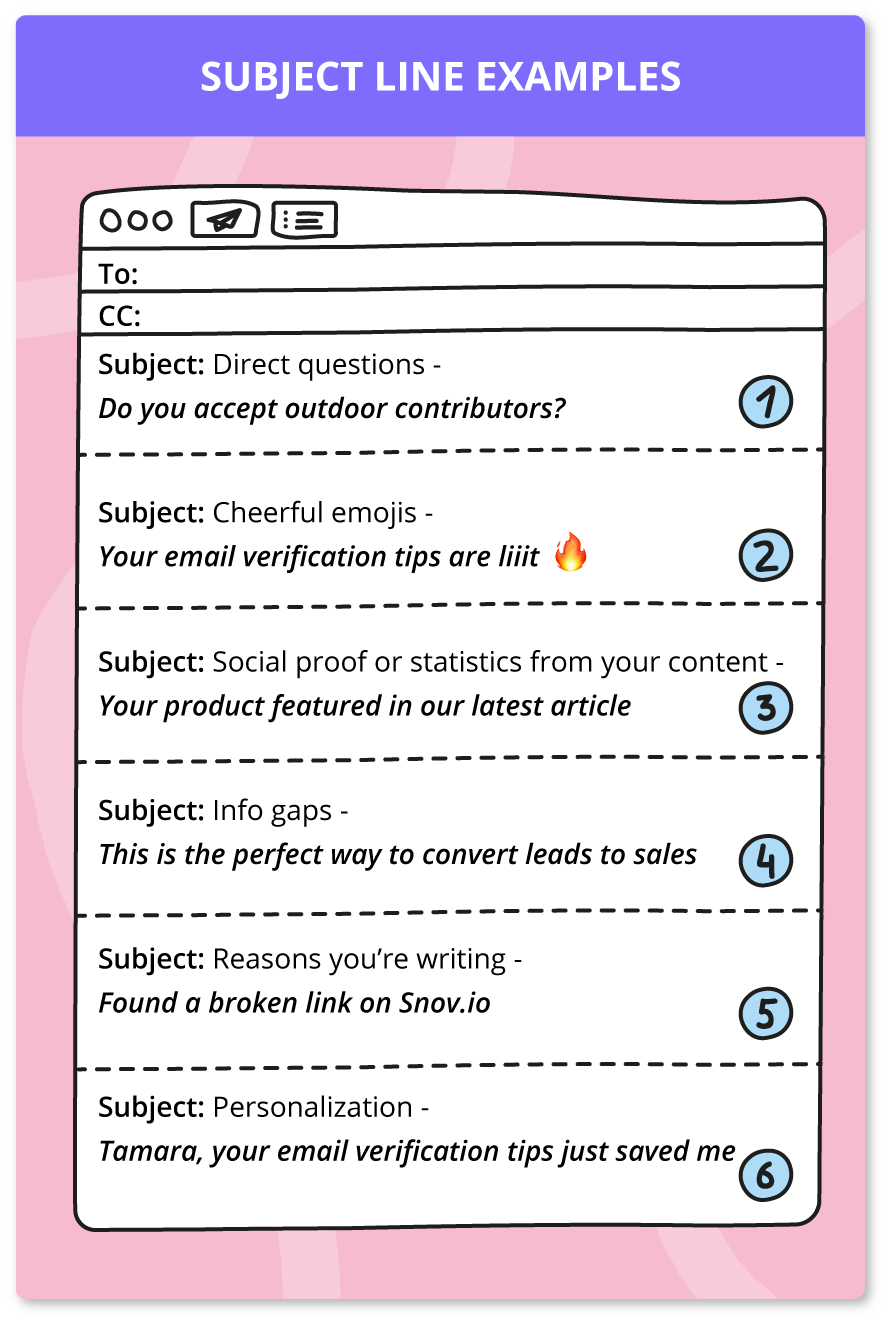
The last tip may seem like a total no-brainer, but outreach specialists often forget about personalization. And we don’t even talk about in-depth digging to learn more about the person you’re reaching out to. We were amazed at how often he received emails that said “Dear sir/madam.” Would you bother to read the rest?
Matthew Woodward claims that humor in the subject line matters, so it’s a good idea to hook your recipient with it:
“Something humorous that touches on the topic of your email but also makes them want to open it… Again not one size fits all but we have found this method to be the most successful. Something like, “Here we go again… Another outreach email requesting a backlink!”
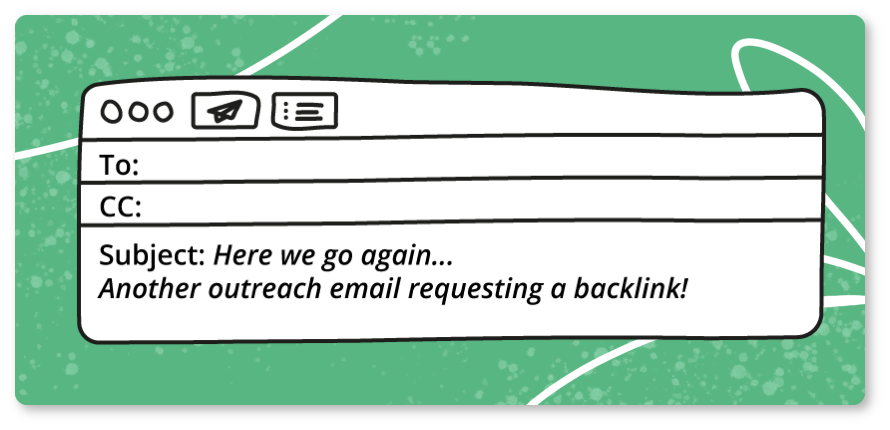
And Phil Forbes, Head of Outreach at Packhelp, suggests taking your recipients by surprise by coming up with a subject line that will be completely unrelated to the email content but stand out in their inbox:
“I’ve been using “Your favorite sports team will lose this weekend.” It certainly gets opened — and then the hardest part of your job is done, and your witty prose and value proposition can do the rest.”
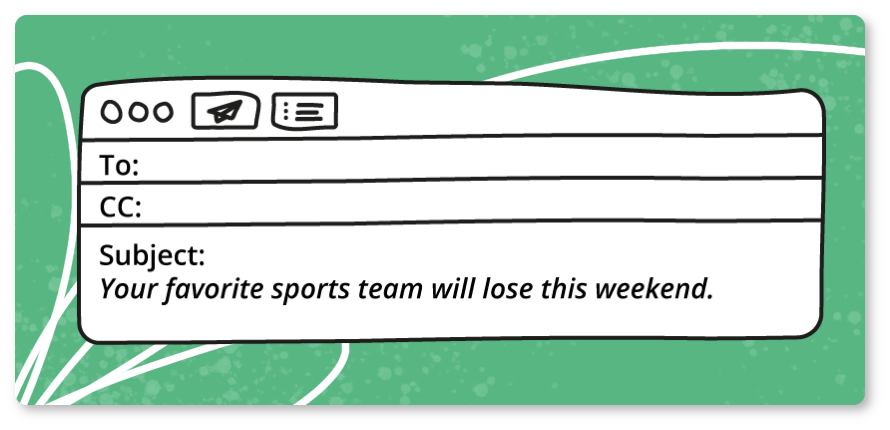
And lastly, when it comes to subject lines – TEST, TEST, TEST.
How do you add personalization to your outreach?
Show them you know them, but avoid annoying flattery
We all love receiving compliments. But your inbox is probably full of messages that start like this:
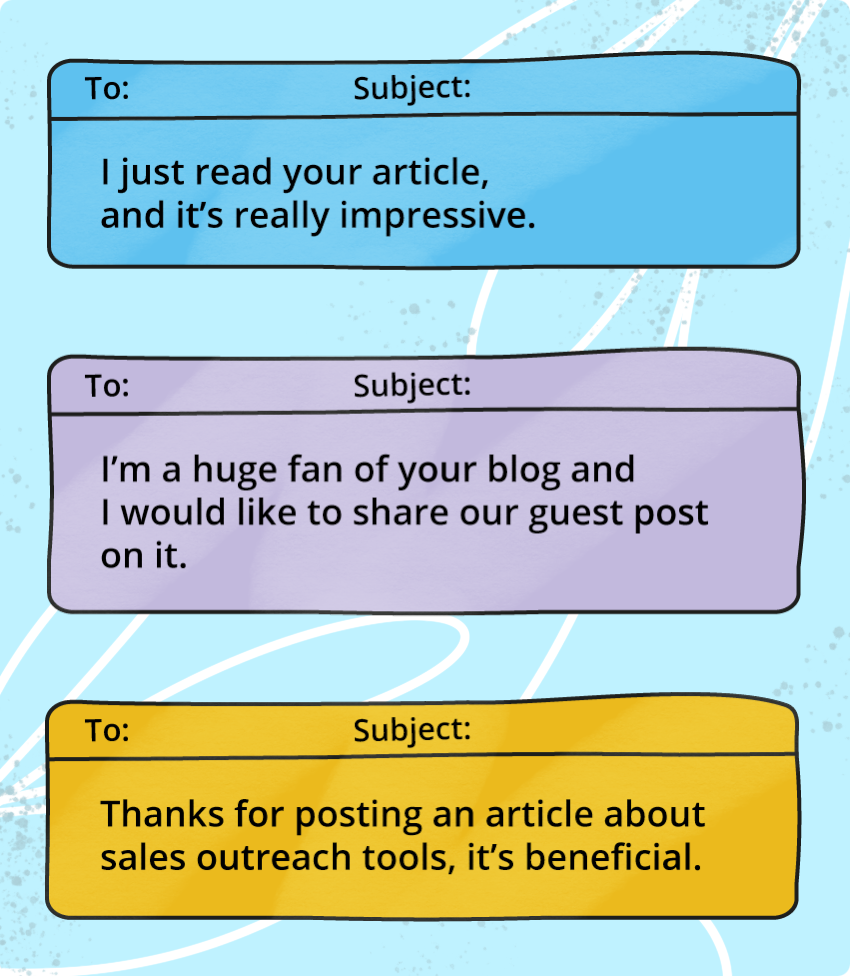
If you want to compliment a person, make sure it’s meaningful. Statistics, results, and positive experience with their product are your friends here. This will show that you’ve done your homework and even implemented the information mentioned in bloggers’ articles.
Here’s what Deepak Shukla says about it:
“The campaign with the best result will be the one with the most evidence of success. Saying ‘Hey, I know your platform. I’ve used it and I love it! I’d love to share with your audience the results I’ve seen from it, and I’m someone I think your readers would associate with.” This type of outreach makes sense.
Anytime we’ve seen a positive result from a software tool that we’ve enjoyed using, we’ll reach out to them and use that to form a relationship. It’s genuine outreach that brings value — and it works!”
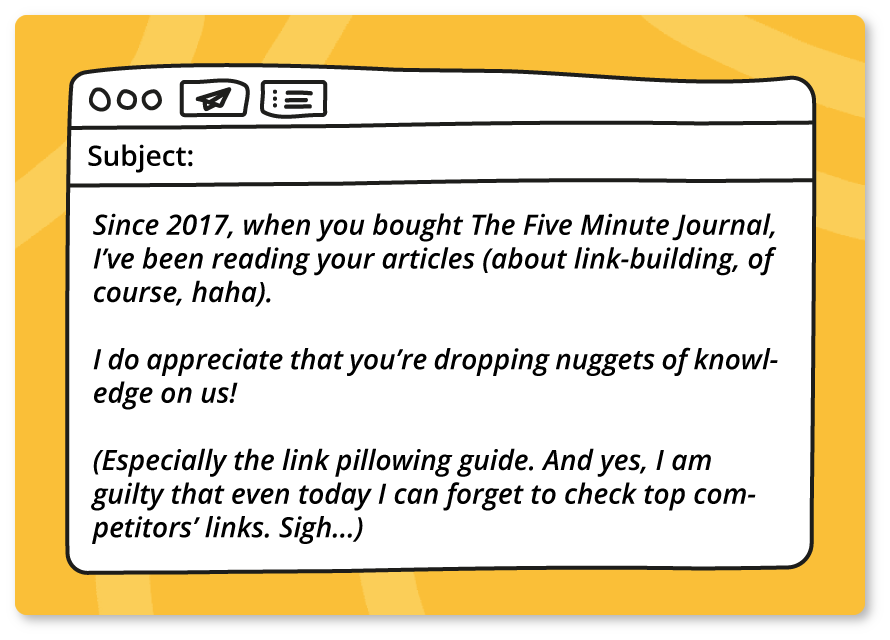
How many follow-up emails do you send?
Don’t be that guy that floods the inbox and can’t take “no” for an answer. By regularly attacking your non-responders, you ruin any chance of another attempt later down the path.
Still, since people have a short attention span, it’s possible your recipient got distracted. With follow-ups, you have a 21% chance of getting a response. That’s why we suggest following up no more than three times, and the majority of experts we consulted agree with this. As Vlad Shvets (Paperform) shares:
“We usually send just one follow-up, 7-10 days after the first email. If it goes unanswered, we leave the responders alone.”
Meanwhile, Alexandra Khilova prefers not to send follow-ups at all unless there’s an engaging discussion going on. What do you think about that?
“I use follow-ups when we have a dialog. If they don’t answer my pitch for the 1st time, I don’t send follow-ups. I track all my emails and I see that my message was opened, and nobody answered. Sooo, they are not interested, and I don’t waste my time following up with these guys.”
If you decide to follow up, consider timing. Matthew Woodward believes that avoiding sending on several days of the week is a great idea when it comes to email outreach:
“Make sure you don’t send follows up at the same time or day, change it up for a better chance of getting a response and avoid sending anything on Friday-Monday if you don’t want to get lost in the mass of emails most businesses have to wade through on a Monday morning.”
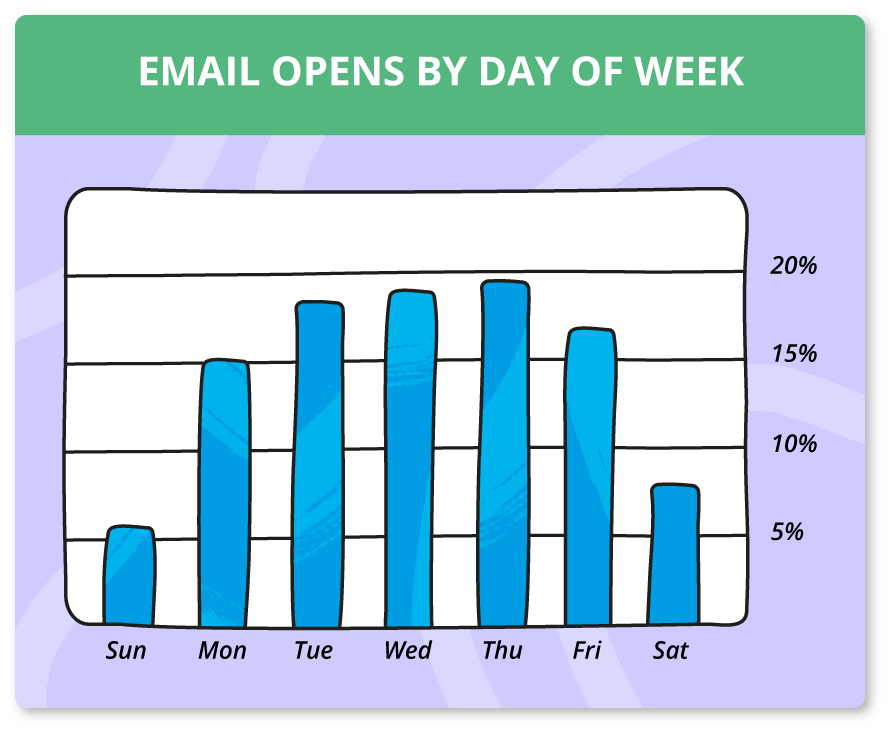
What automation tools do you use for link building?
When it comes to automation tools, some prefer scraping their contacts manually and writing most of their emails by hand, personalizing them as much as possible. Others will automate for large-scale campaigns but ensure that their follow-up process is always individualized.

Link Building Outreach From A To Z With Snov.io
November 7 2025

13 SEO Tools To Help Your Outreach Campaign In 2026
December 23 2025
Let’s take a look at what services our experts chose:
Ahrefs (Valerie Frolova’s pick)
“Ahrefs gives mostly all stats and characteristics I need for websites’ analysis, e.g., content explorer tool for following topics I’m interested in.”
What is of utmost importance to many of us is search volume, and while other tools provide this information as well, Ahrefs results are more accurate. With its help, you can analyze competitors, see every backlink pointing to their pages, and uncover dead pages with backlinks, which will keep you busy for months.
And if you’re not sure what pages you are competing with, Ahrefs Keywords Explorer and SERP Overview will show you how many links each top-ranking page has.
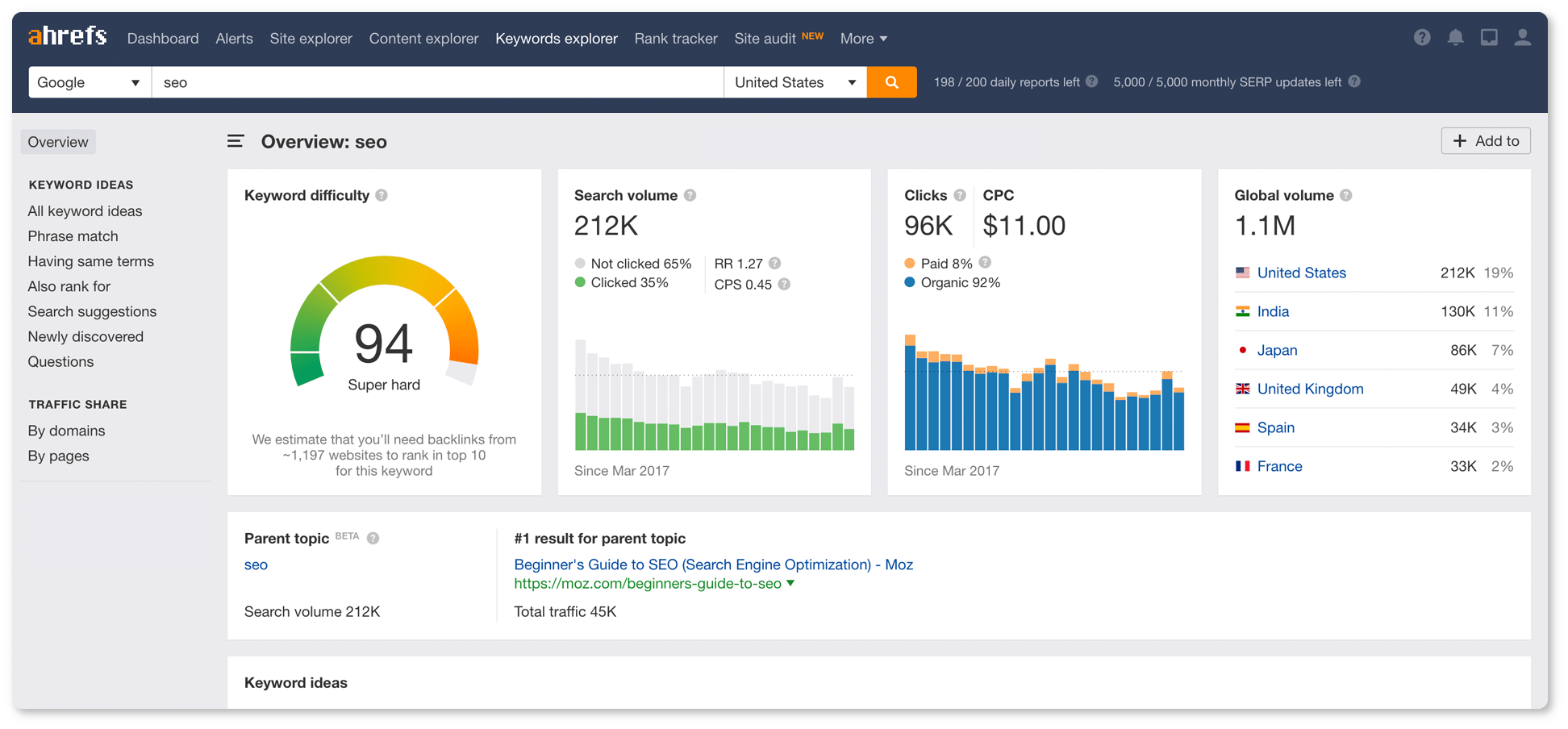
Snov.io (Deepak Shukla’s pick)
“We found that building email campaigns, both for ourselves and clients, was becoming time-consuming. We needed a way to streamline the process, as well as to ensure that the quality of our campaigns didn’t take a nose-dive as a result. Snov.io was the perfect solution to this challenge.”
Contacting potential partners and asking them for links is already a daunting task. But it may seem almost impossible when you have no email addresses to send your outreach emails to.
Luckily, there are plenty of tools you can use to build your outreach list.
Snov.io is one of them.
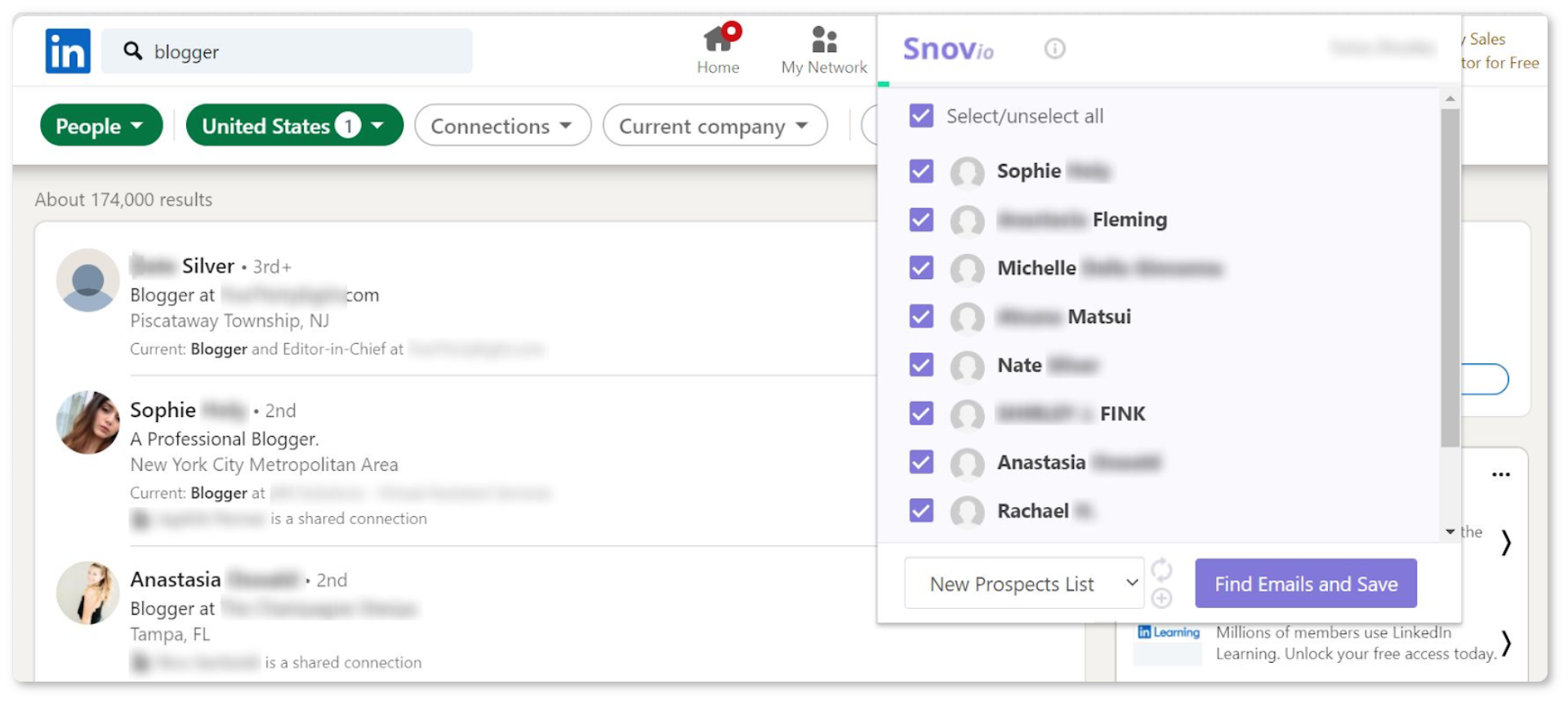
It’s actually more than that. First, because it includes email verification. Second, because you can find emails right from your browser. And lastly, because you can use it for email drip campaigns and scheduling your follow-ups.
SE ranking (Alexandra Khilova’s pick)
“I use SE Ranking for monitoring my backlinks as we have a lot of projects.”
Keyword search, ranking, and tracking — this powerful platform provides all the SEO tools you need for creating the best campaigns. You can evaluate websites against different parameters, get your competitors’ backlinks, compare your visibility rating, and import backlinks and their detailed analysis.
Besides, SE Ranking makes it so easy to come up with a marketing plan and a global business development strategy for your outreach. Using this keyword research tool will lead to a better understanding of how much influence social media has on the audience.
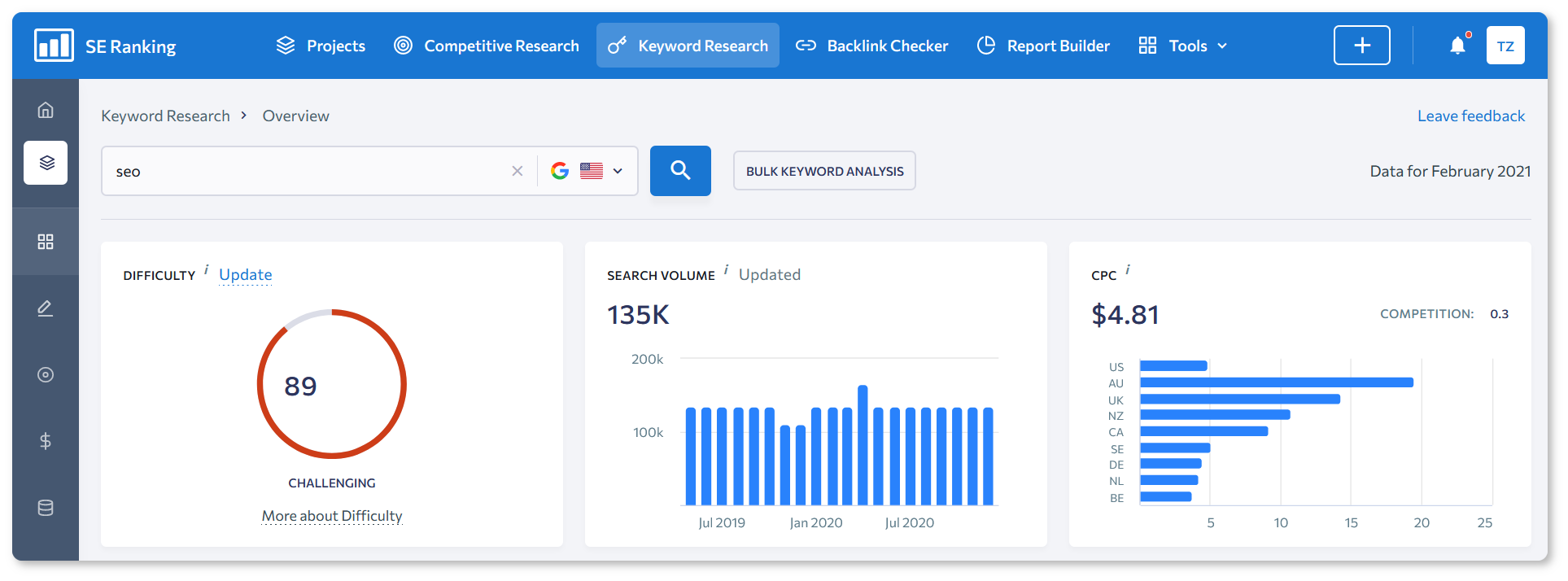
Pitchbox (Matthew Woodward’s pick)
“We are die-hard Pitchbox users… I can’t emphasize enough just how good this tool is!”
You can do everything from within this influencer outreach platform. They even have some of the top backlink checker tools integrated!
Each campaign can be fully personalized. You review sites, the tool finds contact information for you, you load up your template emails, and all follow-ups are automatic for non-responders. You can then manage responses from within Pitchbox. And once links are live, you can use their link monitoring tool to make sure they stay that way!
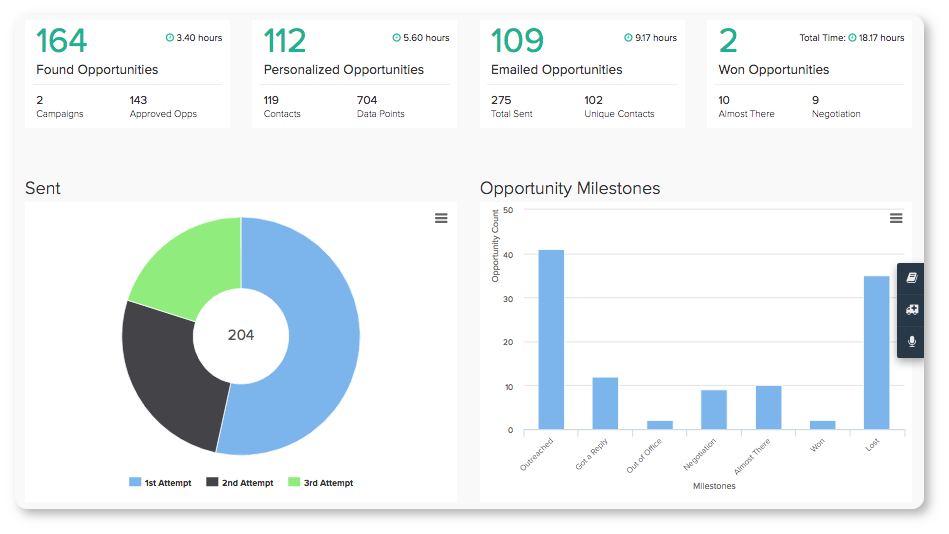
Hunter.io (Ron Evan’s pick)
“We use PitchBox for outreach, Hunter.io for looking into email addresses of websites, and Ahrefs to look into the metrics and backlinks of a website (it’s good for competitor research, as you can send outreach campaigns to all the strong backlinks of your competitors).”
This is another popular tool used by Ron Evan Del Rosario, Link Building Strategist at Thrive Agency. It combines Email Finder, Email Verifier, and MailTracker for Gmail. It allows you to hunt for emails of all professionals with ease. And with the Chrome extension and bulk domain search, Hunter.io becomes a wonderful addition to any company’s outreach strategy.
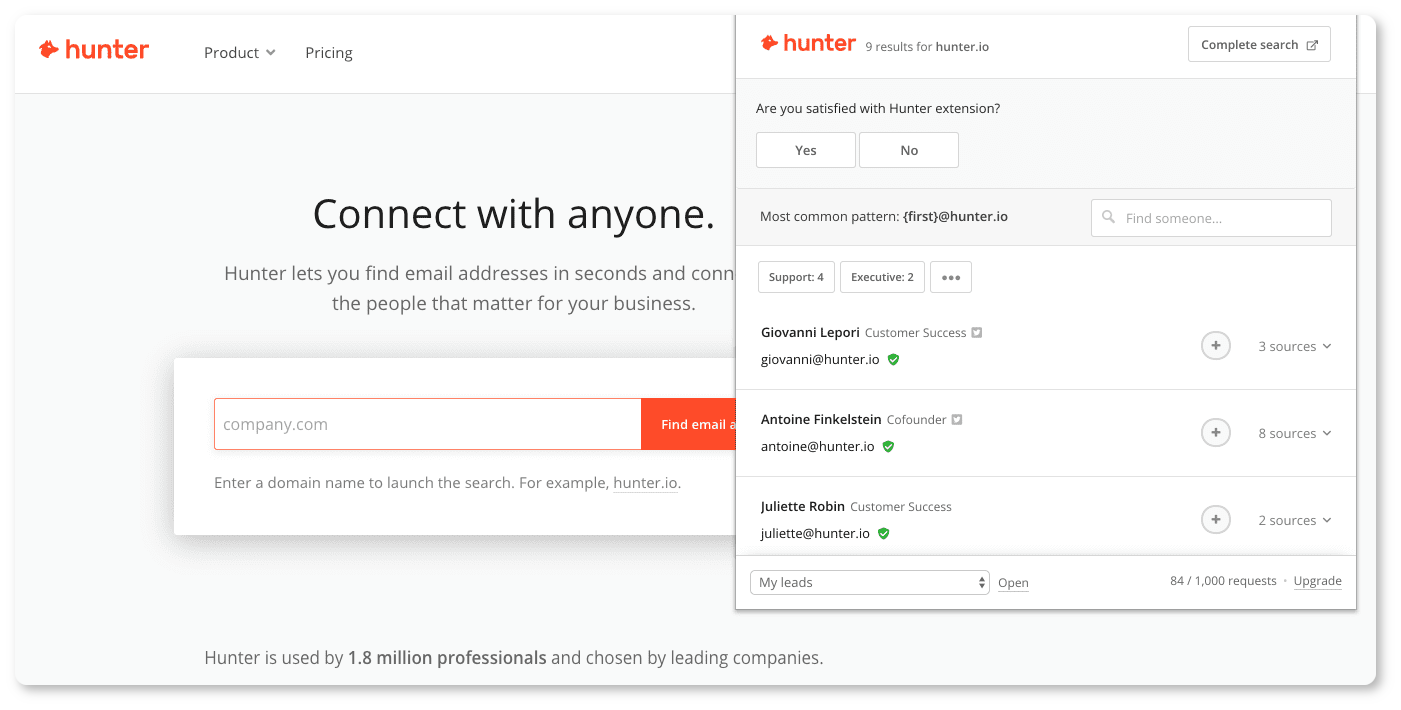
Setting up your outreach campaign with Snov.io
Now that we’ve mentioned a few SEO tools, you might wonder how to find and verify email addresses to boost your outreach. Let us show you how to do it with Snov.io.
Option 1. Use Email Finder extension
It looks like you’ve found a perfect article to be featured in. Usually, you can see the name of the author at the beginning or the end of it.

Now go to the company profile and launch the Snov.io Email Finder extension.
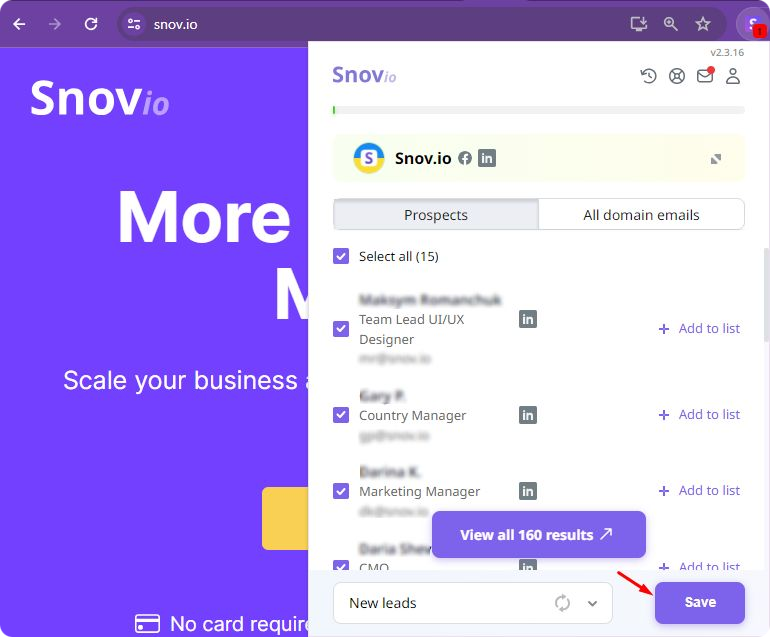
If it’s not a guest post — you’ll see the needed contact in the prospect list. If you can’t find the author, you can look for the contacts of the editor or marketer.
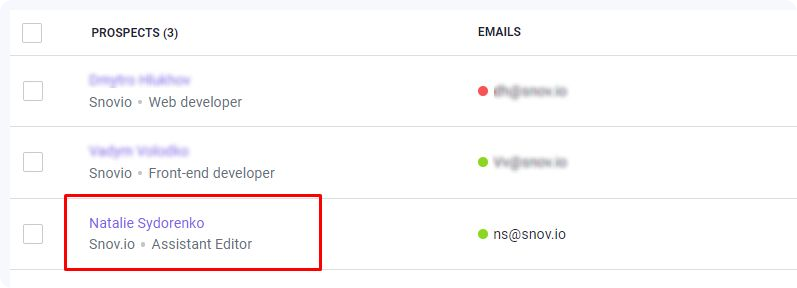
Option 2. Use Email Finder app
You can also find all company prospects or website emails with the Snov.io Email Finder app. Select Domain Search, enter a site into the tool, and it’ll show you all email addresses associated with it. Choose the person you need to contact and add them to one of your prospect lists.

If the company is quite large and you don’t want to spend time scrolling through employee contacts, you can find the right prospect with the Single Email Search tool. Just enter the person’s name and domain name, and it’ll give you their email address.

↓

↓

All emails found with Snov.io are already pre-verified. If you find an email address of the writer in the bio, we advise you to check it with Email Verifier if it’s still valid.
Wrapping up
There’s no one-size-fits-all approach to link-building outreach; it all depends on your strategy, be that reclaiming brand mentions, guest-blogging, or getting backlinks.
But we hope these expert tips will be of great help to you. Give them a try!






